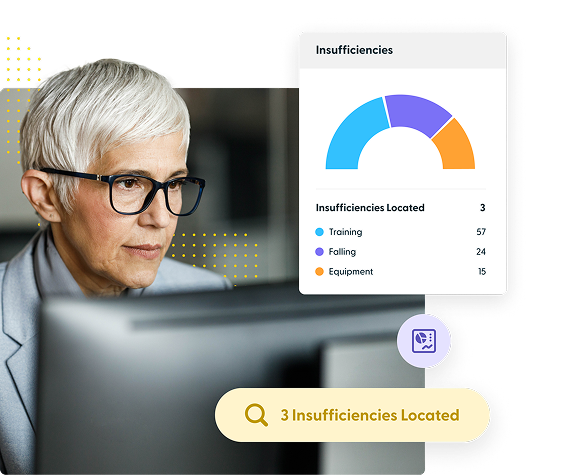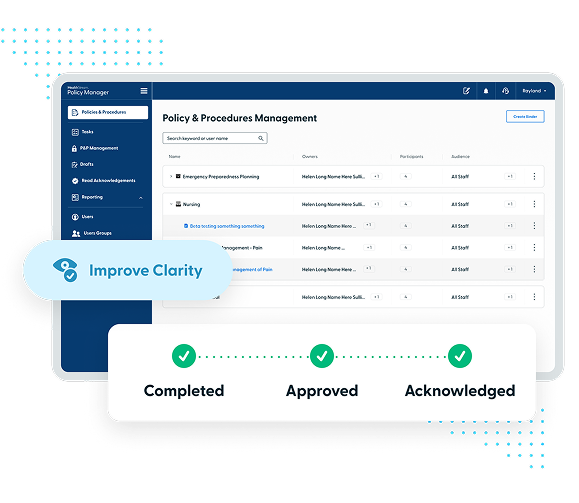Continuous Quality Improvement (CQI) in healthcare
Adopt a proactive approach to resident safety, operational efficiency, and survey readiness with a proven healthcare quality improvement methodology.
.png)
Continuous Quality Improvement (CQI) software for healthcare
Adopt a proactive approach to resident safety, operational efficiency, and survey readiness with a proven healthcare quality improvement methodology.
.png)
What is CQI in healthcare?
Continuous quality improvement (CQI) in healthcare is a structured, ongoing process that evaluates how an organization works and ways to improve its processes. Unlike traditional quality assurance, which often focuses on detecting errors after they happen, CQI in healthcare is proactive. It encourages every team member—from the bedside to the boardroom—to constantly ask, "How can we do this better?"
For organizations like skilled nursing facilities (SNFs) and hospitals, implementing a robust continuous quality improvement healthcare process isn't just about passing the next CMS survey. It is about building a sustainable culture where safety, efficiency, and high-quality care are the standard, not the exception.
The Value of a Continuous Approach
Adopting healthcare continuous quality improvement strategies offers measurable benefits that impact your bottom line and your care outcomes.
Always Audit-Ready
Move away from the "fire drill" panic of survey windows. A continuous approach means your documentation, policies, and facility assessments are always up to date, reducing the risk of deficiencies and financial penalties.
Enhanced Operational Efficiency
Inefficient workflows drain resources and frustrate staff. CQI helps you identify bottlenecks—whether in admission processes or policy approvals—so your team can focus on care rather than administrative red tape.
Improved Resident Safety & Outcomes
By regularly analyzing data and incidents, you can identify trends before they become serious safety events. This proactive stance directly correlates to better star ratings and improved resident satisfaction.
The future of CQI in healthcare
Healthcare is evolving, and so are the methods we use to improve it. As we look forward, continuous quality improvement in healthcare is shifting toward a more integrated, data-driven model.
Technology that supports your quality journey
Implementing a healthcare quality improvement methodology is difficult with manual processes like binders, spreadsheets, and sticky notes. The right digital infrastructure turns chaotic data into actionable insights. HealthStream offers a suite of solutions designed to streamline these complex workflows.







Build a culture of quality with proven CQI tools
Don't wait for the next survey to look at your quality processes. Equip your team with the tools they need to drive safer, more efficient care.


.avif)
